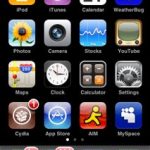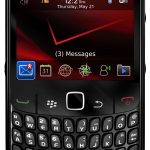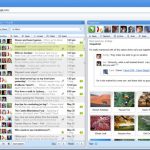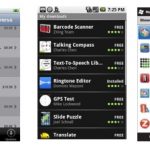The iTunes App Store at 100,000: Can we stop counting, already?

Ever since Apple launched its App Store barely 16 months ago, we've paid a lot of attention -- indeed, too much -- to the number of applications it contains. As the App Store crossed the 100,000 title barrier last week, it occurred to me that the bigger this number gets, the less it actually means.
I get that Apple has won the sheer-number sweepstakes. I appreciate that no other mobile storefront can even come close. I also understand how broad software availability (in terms of sheer numbers as well as ease of acquisition) has helped fuel the growth of the iPhone/iPod touch universe. I just think we attach way too much importance to this single figure, and it distorts our ability to understand ultimate value to end users and developers alike.
Firefox turns five: Thanks for giving us a choice

Birthdays in the world of tech normally aren't that big of a deal for most folks. We tend to feel as much nostalgia toward hardware, software and services as we do toward flu shots and oil changes for the car. But even if you don't use Firefox -- and by the numbers, that's over 60% of you -- it's difficult to underestimate this once-upstart browser's impact on the way we experience the Internet, and how our software is developed in the first place.
Replacing monopoly with choice
How RIM can avoid a premature endgame for BlackBerry

Once not so long ago, if you wanted bulletproof e-mail on a mobile device, you bought a BlackBerry. Research In Motion, the company that practically defined wireless messaging a decade ago, has done quite nicely for itself since then, garnering over 56% of the market for smartphones in the US and about 20% of the overall wireless handset market that includes smartphones as well as conventional feature phones. Its end-to-end encryption and still-unique service paradigm that routes messaging traffic through secure Network Operations Centers further endeared the platform to enterprise buyers, even as the company was successfully pushing the franchise into the consumer space.
Unfortunately for RIM, nothing stays the same in the increasingly competitive wireless market. The BlackBerry is no longer a market of one, and many of the features that defined the platform -- including push e-mail and enterprise-class security -- are no longer unique. Worse, the critical feature set for a modern smartphone has expanded to include rich Web access, broad application availability, and an integrated, Web services-aware operating system. It's no secret that the BlackBerry platform lags in all of these areas with its fine-for-the-1990s browser, relatively paltry app ecosystem, and an OS that despite regular incremental updates still betrays its decade-old roots.
Antisocial media: Lack of safeguards is killing the experience

Say it with me, everyone: Facebook sucks.
I don't mean that in a literal sense, of course. But the growing number of obviously hacked status updates and phishing-like scams coming from folks we all thought were our friends has me wondering if Facebook is having more than a little trouble keeping a lid on the kinds of nasties that have already ruined e-mail, Usenet, and while we're at it, the Web in general.
Non-exclusive iPhones: Has Verizon waited too long?

I've never been a fan of exclusive deals between handset manufacturers and wireless carriers. I understand why they appeal to the Apples and the AT&Ts of the world in the first place, but it ticks me off that sweet deals like this always seem to leave consumers out in the cold. They limit choice and competition, which tends to keep prices artificially high for longer than they should, and they make it easier for carriers to maintain the kind of old, customer-unfriendly practices that have long stained the industry.
When a given gotta-have-it device is available only through one carrier, consumers are forced to make a Hobson's Choice in that they can choose by device, or by carrier, but not both. And if they dislike the exclusive carrier for any reason, they either hold their noses and sign, or learn to live with another carrier's second-rate hardware.
Nokia lawyers up, chooses to fight Apple in court rather than the market

If timing is everything in business, Nokia apparently didn't get the memo. Apple's iPhone has been on sale for about 28 months now, but only last week did Nokia file a wide-ranging lawsuit in Delaware District Court that covers no fewer than ten alleged patent infringements.
This isn't anything new in the tech industry. In a business where intellectual property accounts for a disproportionately huge slice of any given product's value proposition -- and ultimately its market success -- fights over who came up with what idea first are common. For example, Research in Motion has paid out over a billion dollars over the last three years to settle two significant patent lawsuits that, if left unresolved, could have shuttered its popular BlackBerry devices for good.
Our love/hate relationship with Microsoft: What happens now?

Over the years, Microsoft has been vilified for more reasons than you can shake a memory stick at. But the world is bigger than Microsoft; and if we're going to take the time and effort to hate something, it makes more sense for it to be something deserving of hate -- like government corruption, unsanctioned access by certain countries to nuclear missiles, and diseases that evolve faster than our ability to comprehend them. Tossing bile at a mere software company would be too easy if it weren't so pointless.
As Microsoft releases Windows 7 unto a world that has been well-trained to be suspicious of such events, now is a pretty good time to reconsider why so many people have for so long held a special degree of contempt for the company. It's also an ideal time to question why this has been the case in the first place, and figure out what our attitudes should be from this point forward.
The Windows 7 launch: The cultural event of the entire afternoon

Have you reserved your copy of Windows 7 yet? Did you book off work? Get a babysitter for the kids? Stock up on Red Bull and Doritos?...No? If you're one of the dozens who pine for midnight door-crasher sales at the electronics big box store and Rolling Stones-themed launch events, you may want to make alternate plans.
For anyone who doesn't live in a cave in Afghanistan (and even for a few folks who do), this week could be the most exciting one in an age as Microsoft launches its newest -- and possibly company-saving -- operating system, Windows 7, on Thursday. But 14 years after it redefined the rock-star launch party with Windows 95, and nearly four years after having invested a half-billion dollars selling us Vista, this time around, Microsoft is taking a lower-key approach.
How do you define performance?

System performance is an interesting concept; everyone seems to define it differently. To some, it involves chewing through a complex spreadsheet. To others, it's how fast a 3D video sequence can be rendered, or how easily Web pages are served up.
Call me a rebel, but after years of living off of a BlackBerry, my thinking has evolved. As much as I focused on megahertz and gigahertz for much of my computing life, the most important criteria for me these days are how fast the thing turns on, and how long it stays on before I have to recharge it.
Danger signs: Now how secure does the cloud look?

There are service outages, and then there are service outages. T-Mobile customers who carry the Sidekick smartphone are learning the hard way that there's a major difference between having no access to a service for a little while and losing every contact, calendar entry, and related shred of personal data they've got.
In the not too distant past, Google, Twitter, and Facebook have all experienced basic, quaintly simple service outages. Despite the headlines and general chaos associated with each incident, the bottom line impact was never all that onerous: When service returned, so did their users' data. For the most part, users were given an easy excuse to take a few hours off. And with the exception of Google's subscription services, most were free, so folks couldn't argue that they weren't getting their money's worth.
Facing down irrelevance: What Palm can learn from RAZR

The half-life of any piece of modern electronics, which was once measured in years, is now barely a few months. It's no one's fault, of course, but it's a reality that vendors need to integrate into their own life cycle planning lest they get caught with the product line equivalent of grandma's wardrobe.
Simply put, the half-life of today's uber-hot phones is shrinking. Fast.
Sitting out Google Wave

I've decided I won't be part of the 100,000 or so special folks who are already rolling up their sleeves and digging into the guts of Google's newest uber-desirable online application, the private beta of Google Wave. This will give some poor fellow extra opportunity to troll eBay, bidding $100 or so for an invitation.
It's not like I'm eschewing some exclusive community. Like Gmail before it, Google Wave accounts will eventually be freely available to anyone with a pulse. But unlike Gmail -- which remains in the limelight with regular updates delivered to a widespread base of users who passionately use the service -- Google Wave's lifespan likely won't be as charmed.
The virtual mega-mart: Apple's oversized App Store

By all definitions, Apple's iTunes App Store is a massive success, with sales numbers that would make McDonald's franchisees green with envy. Two billion applications -- half a billion in the last quarter alone -- have been downloaded since the store went live just over 14 months ago. With over 85,000 apps, it puts every mobile platform competitor to shame. The 125,000-strong iPhone Developer Program and successive evolutions of iPhone and iPod touch devices should keep driving growth for a while.
This is all obviously good for Apple, because a vibrant online App Store naturally drives demand for its high-margin hardware. And in the case of the iPhone, AT&T and other partner-carriers benefit from carrying a device whose sales are driven not only by desirable hardware, but by the ability to easily turn the device into pretty much anything the end user wants. The paltry few-thousand choices on Research In Motion's BlackBerry App World, or Palm App Catalog's even paltrier few dozen apps, end up serving as inadvertent advertisements for the iPhone.
My father's laptop: A humble machine's simple lesson

As laptops go, it's nothing out of the ordinary. An average brand -- Compaq -- running an average operating system -- Vista -- used for the ordinary, average sort of things, like Web browsing and messaging. With its 17-inch screen, built-in webcam, and a hard drive with enough capacity to store everything I've ever written, it's the kind of machine that pretty much defines mainstream computing.
The difference is this was my father's machine. And after getting a middle-of-the-night call yesterday from my mom saying he had passed away, just like that, it was the first thing I saw after I got to their house and walked into the living room.
For AMD, keeping it too simple may be too stupid

The "Keep It Simple, Stupid" rule works in business as well as in everyday life, primarily because it forces us to focus on the one or two basic issues we need to make the right decision. My kindergarten teacher shortened it to "KISS," perhaps in the interest of simplicity. When you're driving a car: Know where you are, know where you're going. Leader of the free world: Keep your hands clean, know what you're aiming at. Reprogramming your iPod/in-vehicle audio system interface: Pull over, let the semi pass you.
More data, please
© 1998-2025 BetaNews, Inc. All Rights Reserved. About Us - Privacy Policy - Cookie Policy - Sitemap.